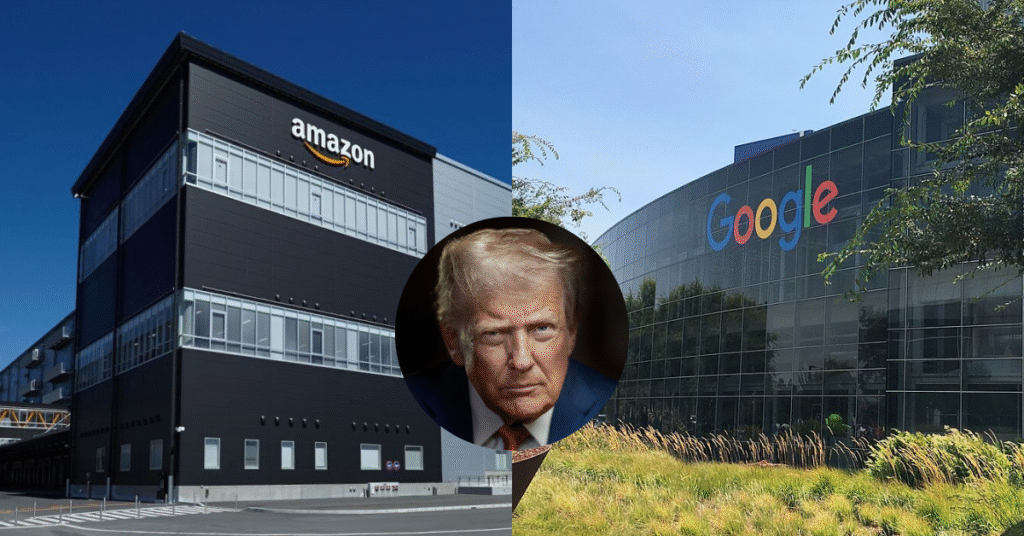In a bold campaign statement, Donald Trump has reignited the outsourcing debate, this time taking direct aim at Indian tech talent.
During a recent public address in Michigan, former U.S. President Donald Trump criticized major American tech companies like Google, Microsoft, and Amazon for their continued hiring of foreign workers, particularly Indians, under H-1B visa programs.
“They’re laying off Americans and hiring people from India. We’re not going to allow that anymore,” Trump said.
The remarks have triggered immediate reactions across both U.S. and Indian tech ecosystems, reigniting long-standing concerns about visa policy, domestic employment, and global outsourcing.
What Prompted the Warning?
Trump’s statement comes at a time when several U.S. tech firms are undergoing restructuring and layoffs. Companies such as Google and Meta have significantly cut U.S. jobs in 2024–25, even as they ramp up engineering and support roles offshore especially in India, Mexico, and Eastern Europe.
For Trump, who is once again campaigning on an “America First” platform, the move is both political and ideological. It taps into nationalist sentiment, positioning outsourcing and immigration as culprits for domestic job losses.
What’s at Stake for India?
India has long been a preferred technology hub for global majors due to its skilled workforce, cost-efficiency, and digital infrastructure. From Bengaluru to Hyderabad, American firms operate massive R&D centers and hire tens of thousands of Indian engineers and developers.
A potential tightening of H-1B visa norms or restrictions on offshore hiring could disrupt this model, at least temporarily. However, industry insiders note that most of the current hiring shift is not visa-driven, but location strategy focused with global firms investing in India as a core delivery market, not just a cost center.
The Larger Picture
This isn’t the first time Trump has targeted Indian tech workers. Similar rhetoric during his 2016 and 2020 campaigns led to minor policy changes but did not stop the long-term growth of India’s IT exports or hiring.
Analysts believe the 2025 remarks are more electoral signaling than imminent policy but they do reflect a global tension between talent mobility and domestic politics.
As the U.S. election approaches and China remains diplomatically volatile, India will continue to play a pivotal role in global tech whether as a friend-shored engineering base or a standalone innovation hub.
Follow StartupStoryIndia for expert coverage where geopolitics, tech, and talent trends intersect.

